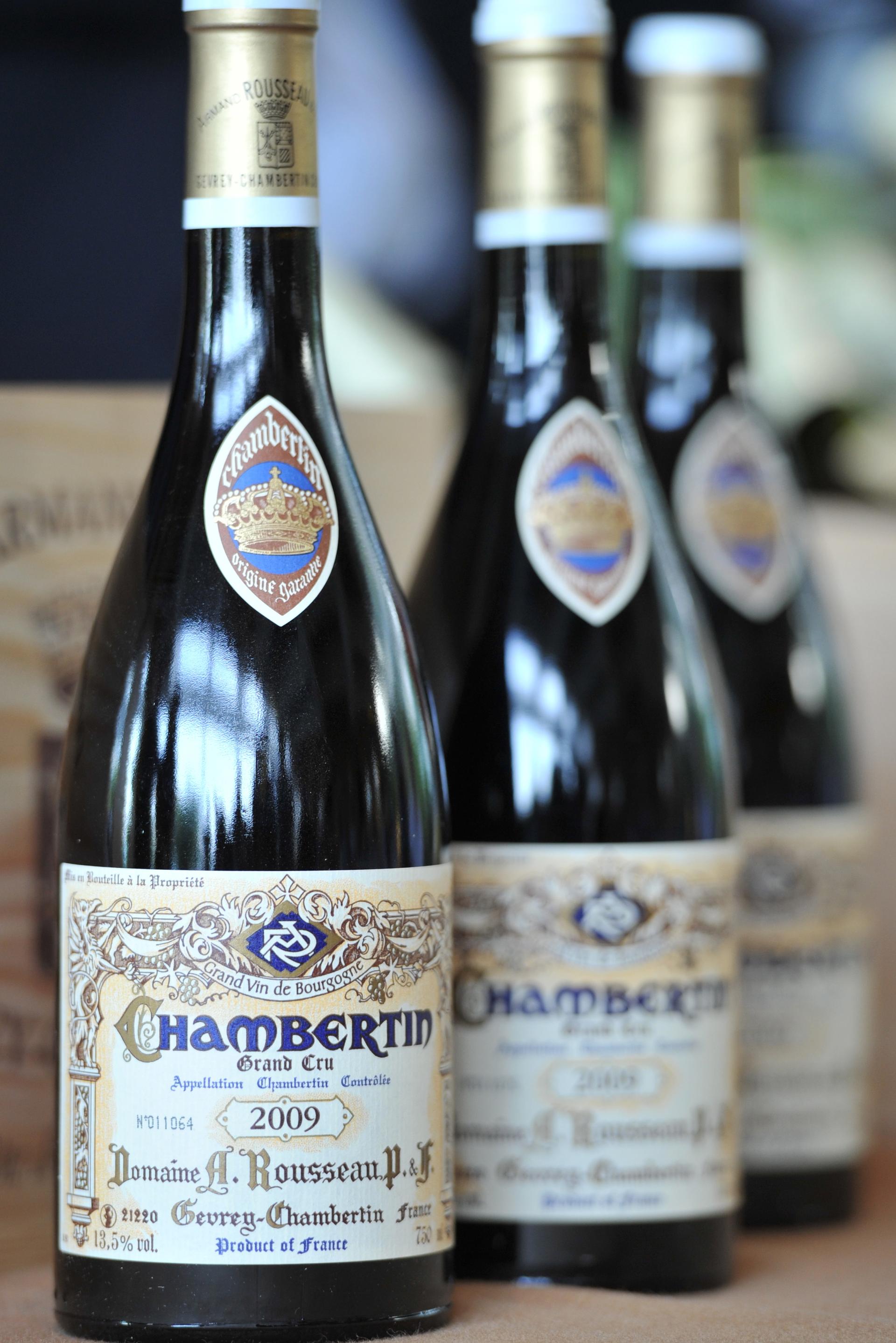Breast cancer linked to light drinking in women
Bottles of A. Rousseau Chambertin Vintage 2009 red wine displayed in Hong Kong this week. Researchers published a study Tuesday that links even small amounts of alcohol to an increased risk of breast cancer.
A study published in the Journal of the American Medical Association Tuesday finds that three and six small glasses of wine a week was linked to a 15 percent increase in risk of breast cancer, reports the BBC News.
The findings are based on more than 100,000 nurses followed over three decades, according to Reuters. The new study stacks the evidence against the potential risks of alcohol.
According to the American Cancer Society, on average, the risk of a woman developing breast cancer is 1 in 8, reports the Los Angeles Times. The study's findings of an increased risk of 15 percent is based on the consumption of 5 to 9.9 grams of alcohol per day.
Dr. Wendy Chen of Brigham and Women's Hospital in Boston conducted the study and said the takeaway should not be to stop drinking, but to cut back the number of drinks women consume each week, according to MSNBC.
An estimated 230,480 new cases of invasive breast cancer were expected in the U.S. in 2011, according to BreastCancer.org.
On the flip side, a second study also released Tuesday lauds the benefits of resveratrol, which is found in trace amounts of red wine, reports the Washington Post. Scientists have been excited about the potential benefits of resveratrol since they began testing it on mice and found that it mimics the benefits of a low-calorie diet.
The study was conducted by scientists at Maastricht University in the Netherlands and published in the journal, Cell Metabolism.
Previous studies, including one conducted by Harvard's School of Public Health, have shown that drinking red wine in moderation can reduce the risk of a heart attack by up to 30 percent, according to Food and Wine.
More from GlobalPost: IVF increases risk of ovarian tumors: Study
